

A Step-by-Step Guide on How to Choose a Crib
7 minute read
August 1, 2025
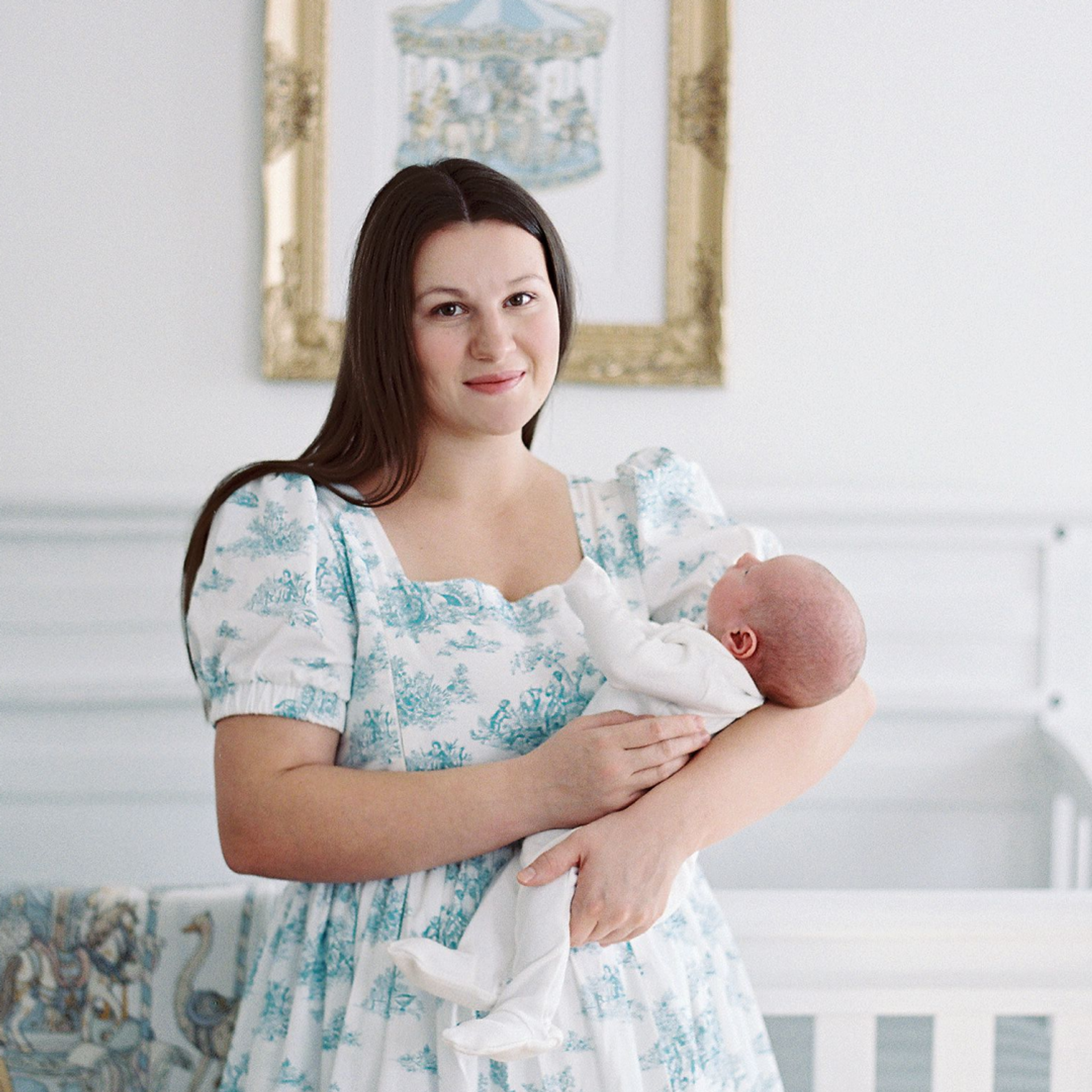
A Step-by-Step Guide on How to Choose a Crib
Crib shopping should feel exciting—not exhausting. If you're expecting a little one, you're probably dreaming up the perfect space for them to grow, snooze, and snuggle. But with so many cribs out there, how do you know which one’s the one? Don’t worry—we’re breaking it all down into simple, stress-free steps to help you find the crib that fits your style, space, and sweet new arrival.
1. Types of Cribs
There’s no one-size-fits-all when it comes to cribs—just the right fit for your family. From full-size to space-saving designs, there’s many to choose from. Here's a quick overview:
a. Standard Size Crib
Perfect for larger nurseries, these cribs offer plenty of space and multiple mattress height settings for long-term use.
- Pros: Long-lasting, roomy, and ideal until toddlerhood.
- Cons: Bulky and less portable.
- Best for: Families with ample space or planning for more kids.
b. Convertible Cribs
These are built to grow with your baby, from crib to toddler bed to full-size bed.
- Pros: Excellent long-term value.
- Cons: Usually require separate conversion kits.
- Best for: Parents seeking a one-time investment.

Product Featured: Evolur Oakley 5-in-1 Convertible Crib
c. Mini Cribs
Smaller and more compact, these are great for shared spaces or apartment living.
- Pros: Space-saving, some convert to twin beds.
- Cons: May be outgrown quickly.
- Best for: Smaller homes or families co-sleeping in the same room.

Product Featured - Dream On Me Edgewood 4-in-1 Convertible Mini Crib
d. Portable/Folding Cribs
Designed for easy storage and movement, these cribs come with wheels and fold flat.
- Pros: Travel-friendly and flexible.
- Cons: Not meant for long-term use.
- Best for: Grandparents, daycares, or frequent travelers.

Product Featured - Dream On Me Folding Full Size Crib
e. Multi-Functional Cribs
These combine a crib, changing station, and storage all in one piece.
- Pros: Space-efficient, converts as your baby grows.
- Cons: Requires more room upfront.
- Best for: Parents looking for an all-in-one nursery solution.
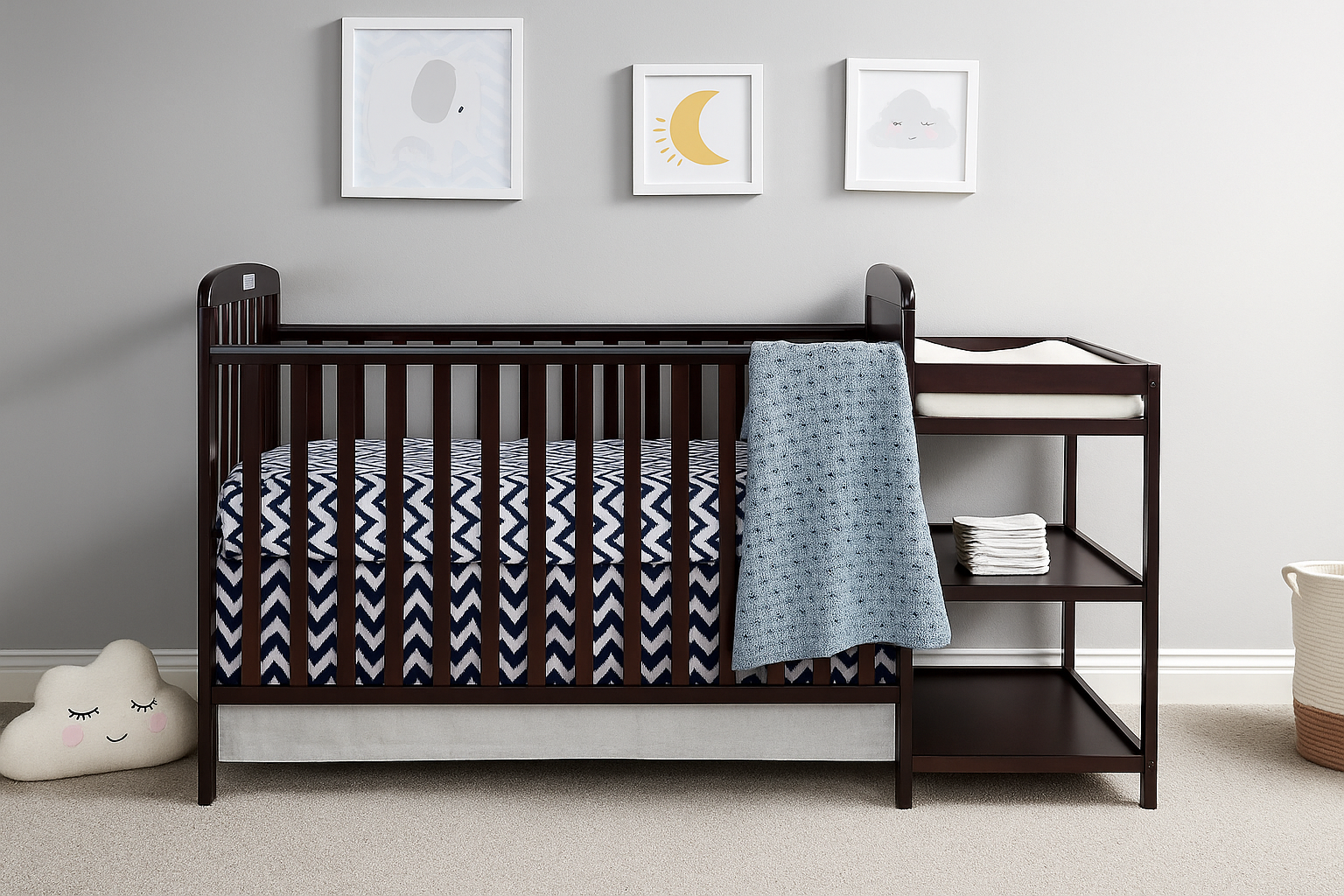
Product Featured - Dream On Me Anna 4-in-1 Full Size Crib & Changing Table
f. Round or Oval Cribs
Charming and compact, these are ideal for smaller spaces and add a unique touch to your nursery.
- Pros: Stylish and space-efficient.
- Cons: Harder to find bedding and pricier.
- Best for: Design-savvy parents who love a whimsical aesthetic.

g. Bassinets, Cradles & Bedside Sleepers
Ideal for the newborn stage, these are lightweight and portable but temporary.
- Pros: Affordable and perfect for early bonding.
- Cons: Suitable only for the first 4–5 months.
- Best for: Newborns and moms recovering from delivery.
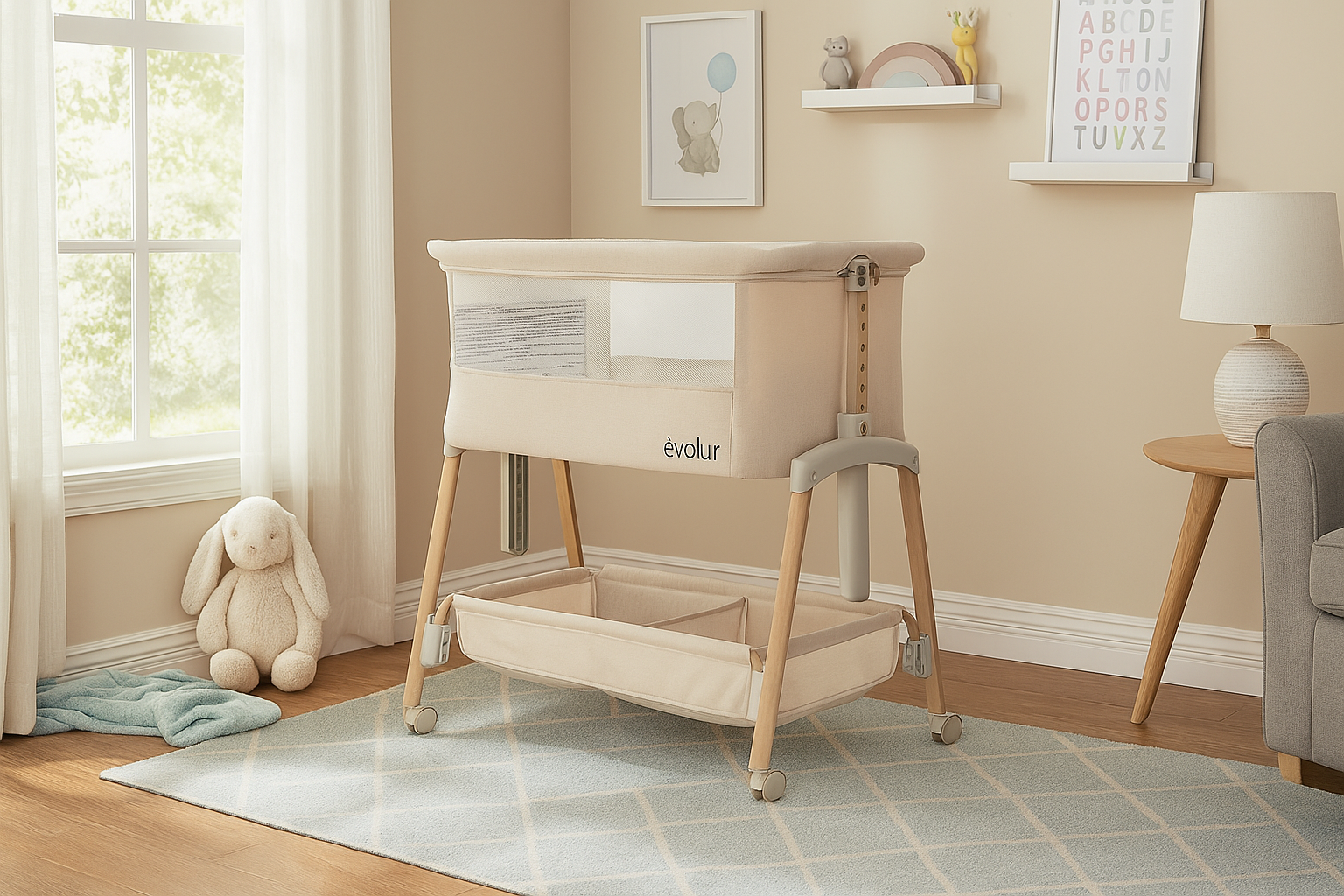
Product Featured - Evolur Lullaby Portable Bassinet with wheels
h. Playards
Designed for travel and quick naps, playards are not primary sleep solutions but great for short-term use.
- Pros: Lightweight and portable.
- Cons: Not suitable for long-term or nighttime sleep.
- Best for: Travel or temporary play/sleep space.

Product Featured - Evolur Zane Portable On The Go Instant Fold Baby Playard
i. Smart Cribs
In today’s ever-evolving world of parenting, smart cribs are revolutionizing how we think about baby sleep. From automatic rocking to responsive features that help soothe your little one to sleep, these high-tech cribs offer more than just a place to rest.
- Pros : Sleep tracking, data insights and remote monitoring
- Cons: High cost and learning curve
- Best for: Parents who need to stay connected to their baby while managing other tasks.
2. Safety Certifications
When it comes to your baby’s safety, certifications matter. Look for:
- BABY SAFETY ALLIANCE Certified: Indicates the product meets/exceeds ASTM, state, and federal safety standards.
- GREENGUARD Gold Certified: Ensures the crib is low in chemical emissions and safe for indoor air quality.
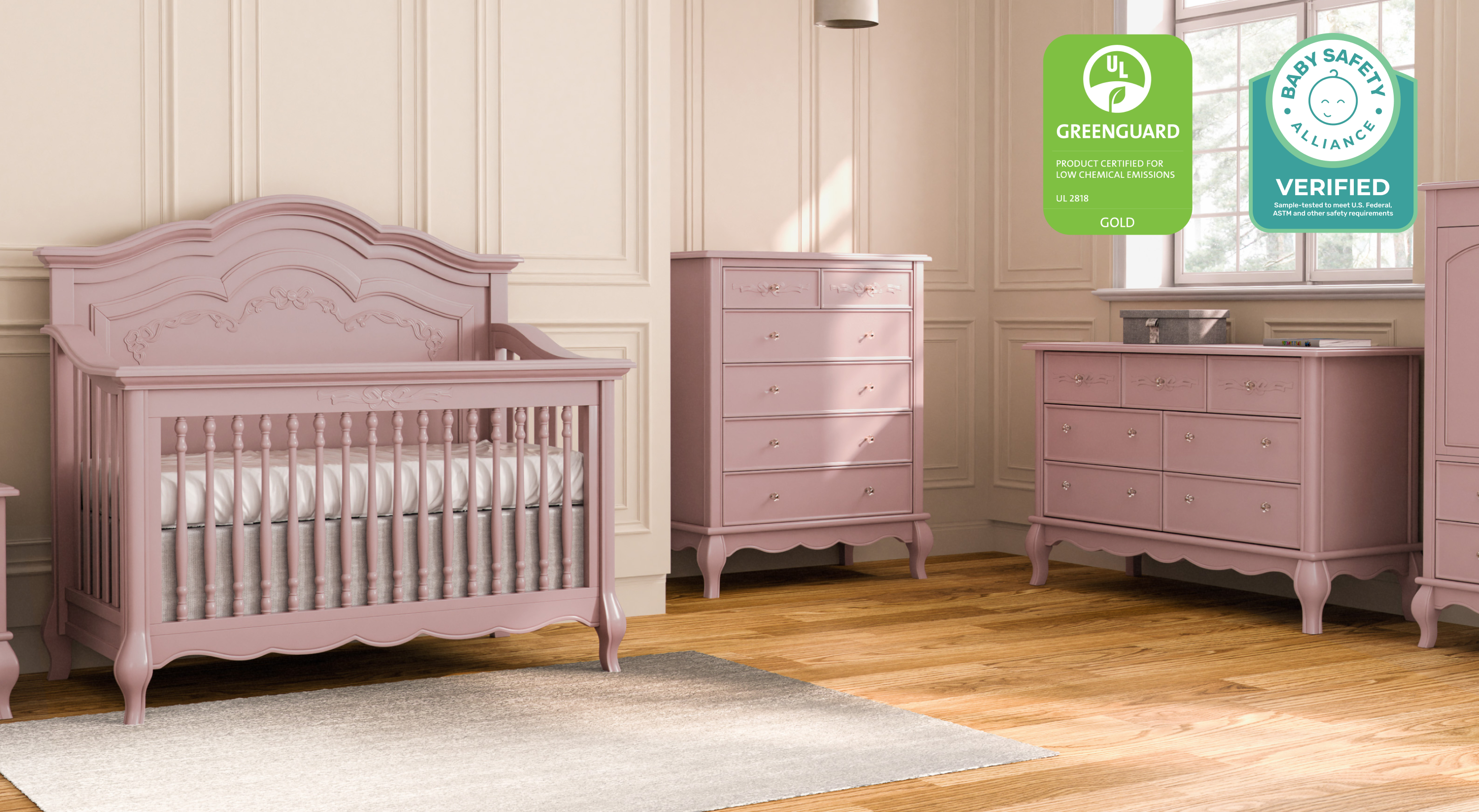
Product Featured - Evolur Aurora Nursery Collection
3. Height of the Crib
Choose a crib with a height that works for you. If you're petite or tall, look for cribs with a low profile or scooped sides to reduce strain on your back.
4. Mattress Height Settings
Most cribs offer adjustable mattress positions. Start high for newborns and lower as baby begins to roll, sit, and stand.
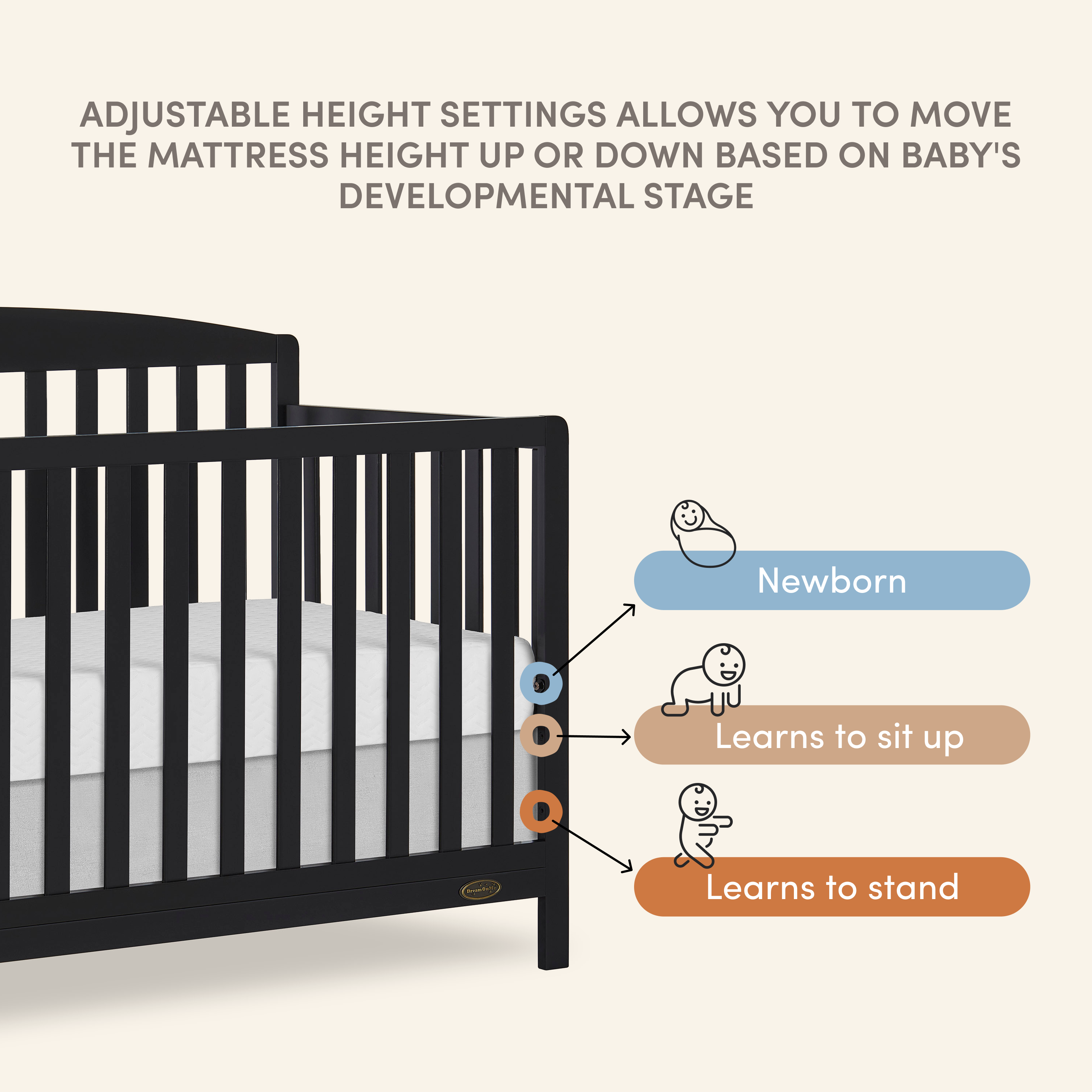
Product Featured - Dream On Me Odelle 5-in-1 Convertible Crib
5. Other Important Factors
Here are a few essential safety and design elements to check before buying:
- Slats: Should be less than 2-3/8 inches apart.
- Corner Posts: Should not exceed 1/16th of an inch in height.
- Mattress Fit: Should be snug with no gaps. Recommended thickness: ≤6 inches.
- Paint: Should be non-toxic and baby-safe.
- No Drop-Sides: Only fixed-side cribs are allowed by safety regulations.
- Crib Sheets: Should fit snugly over the mattress.
- Ventilation & Placement: Keep away from cords, curtains, or windows.
Safety Checklist for Setting Up Your Nursery
- Follow assembly instructions closely.
- Avoid crib bumpers, pillows, blankets, or toys inside the crib.
- Keep crib away from windows, cords, or hanging objects.
- Ensure proper room ventilation.
- Regularly clean under and around the crib.
- If using a secondhand crib, confirm it meets current safety standards and isn’t on the CPSC recall list.
FAQs
1. When should I buy a crib?
Most parents shop during the second trimester and aim to set up by month 7 or 8.
2. How long can I use a crib?
Typically until your baby is 2–3 years old or 35" tall. Transition once your child can climb out.
3. How much should I spend?
Cribs range from $100 to $1000+. Choose based on your needs, style, and features—not just price.
4. Can a newborn sleep in a crib?
Absolutely. Cribs are safe for newborns. If you prefer to co-room, a bassinet is a temporary but effective alternative.
Ready to Choose?
Finding the perfect crib doesn’t have to be overwhelming—it can actually be kind of magical. Think of it as the first piece of your baby’s story: a place where naps, giggles, and first milestones begin.
And remember, no matter what style or size you choose, the best crib is the one that brings comfort, safety, and joy to your growing family.
Explore beautifully crafted, safety-certified cribs at Ever & Ever, designed for every ever after.
Shop CribSuggested For You
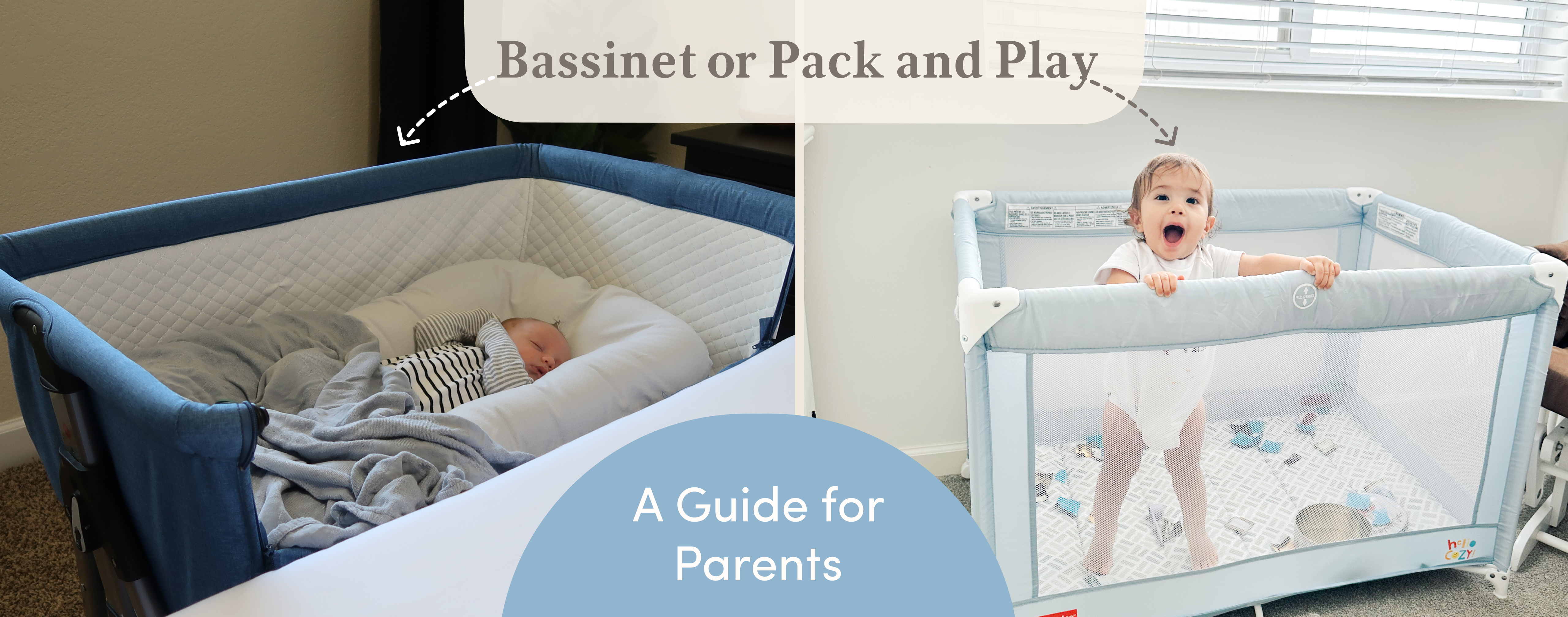
Bassinet or Pack and Play: A Guide For Parents
Expecting a newborn and stuck deciding between a bassinet or a pack and play? You’re not alone. Both options have unique advantages, and understanding them will help you choose the best for your baby’s comfort, safety, and your lifestyle.
Read more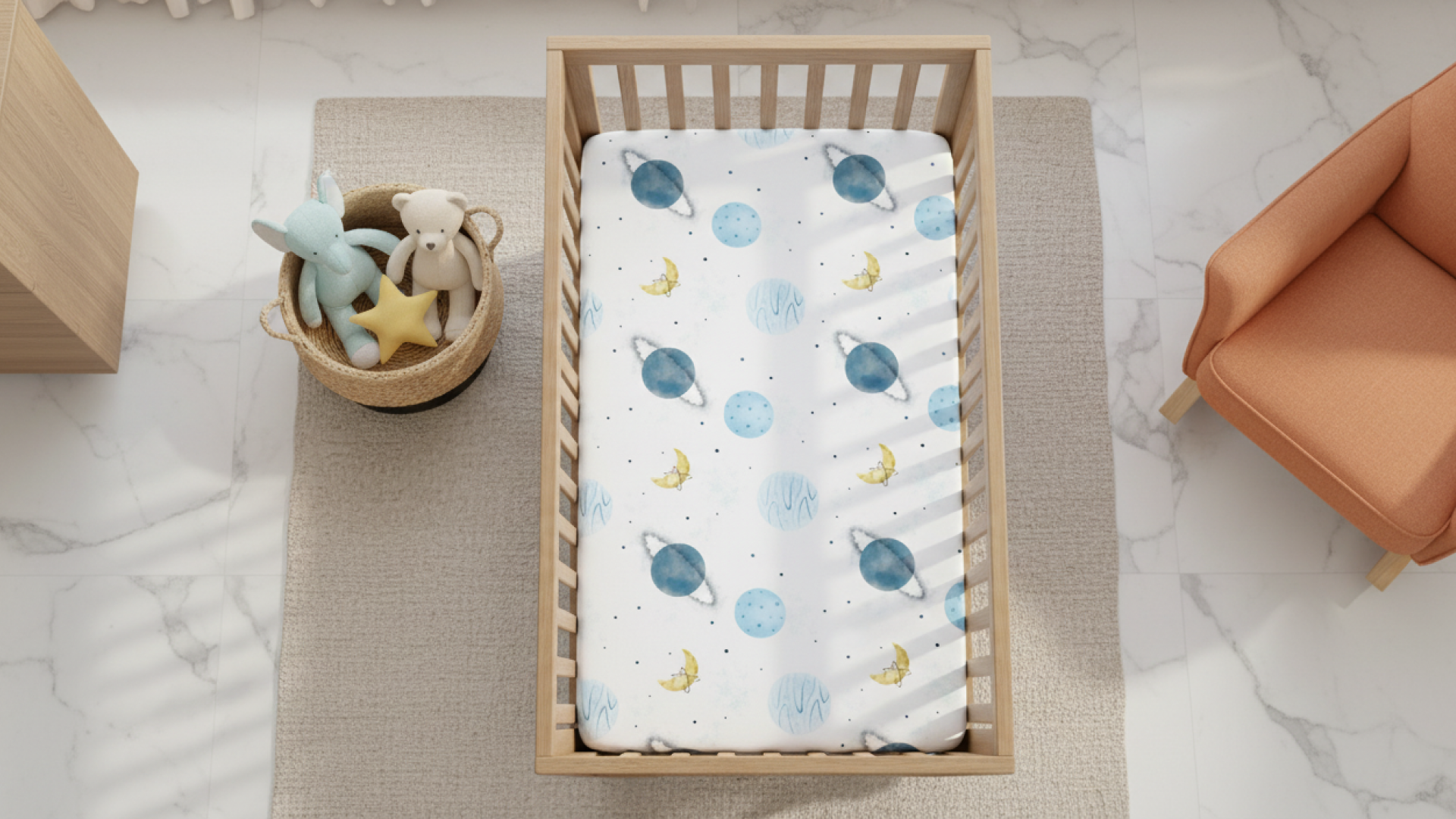
Best Baby Crib Sheets 2025
Finding the perfect crib sheet isn’t just about nursery style—it’s about comfort, safety, and durability for your little one. Whether you’re decorating a whimsical, minimalist, or adventure-themed nursery, we’ve rounded up the top crib sheets every parent will love!
Read more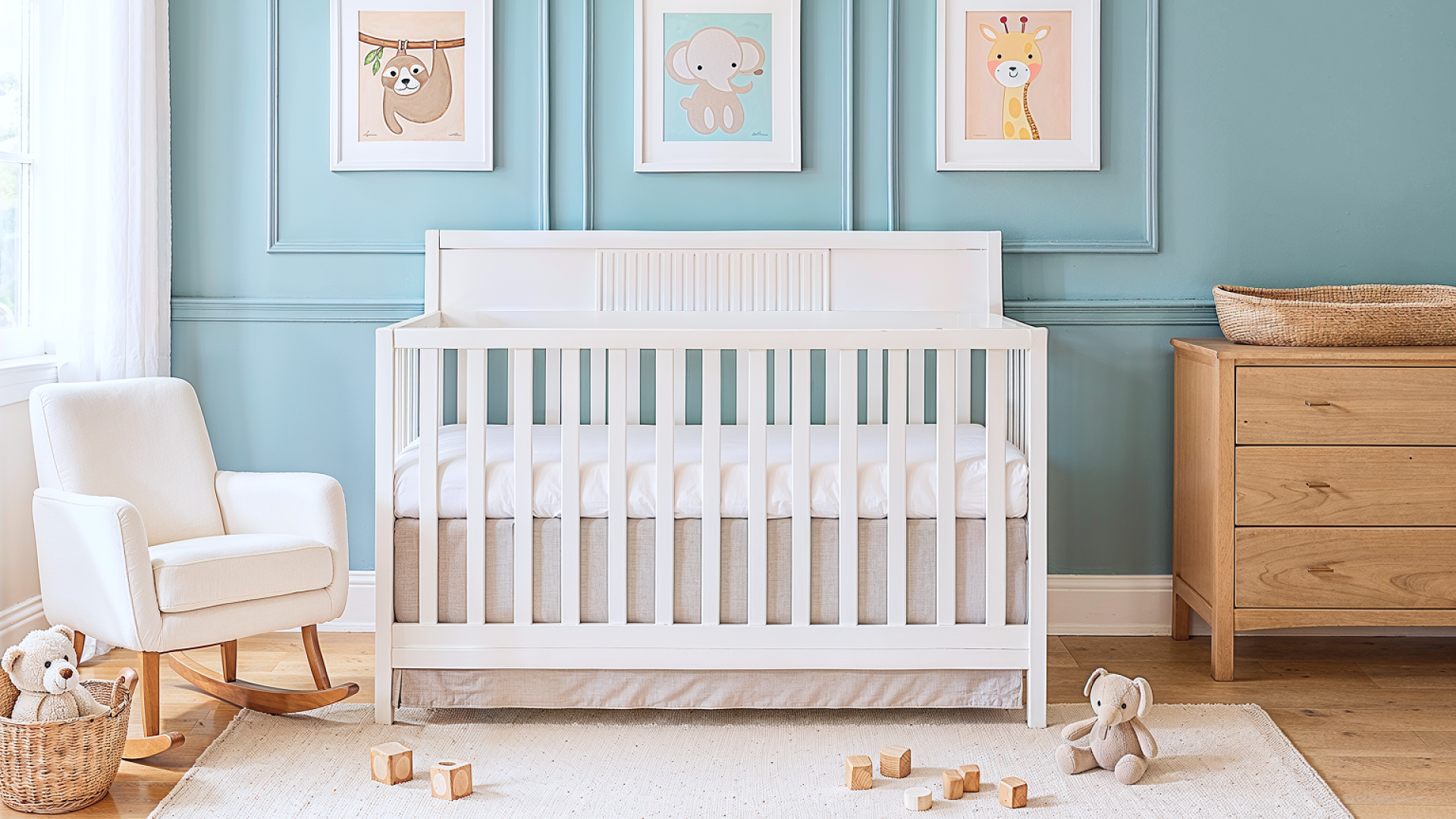
What Do You Need in a Nursery? A Complete Guide to Baby Nursery Essentials
Setting up your baby's nursery is exciting, but knowing exactly what essentials you need can be overwhelming. From cribs and mattresses to storage and safety features, discover the must-have items for your baby’s nursery.
Read more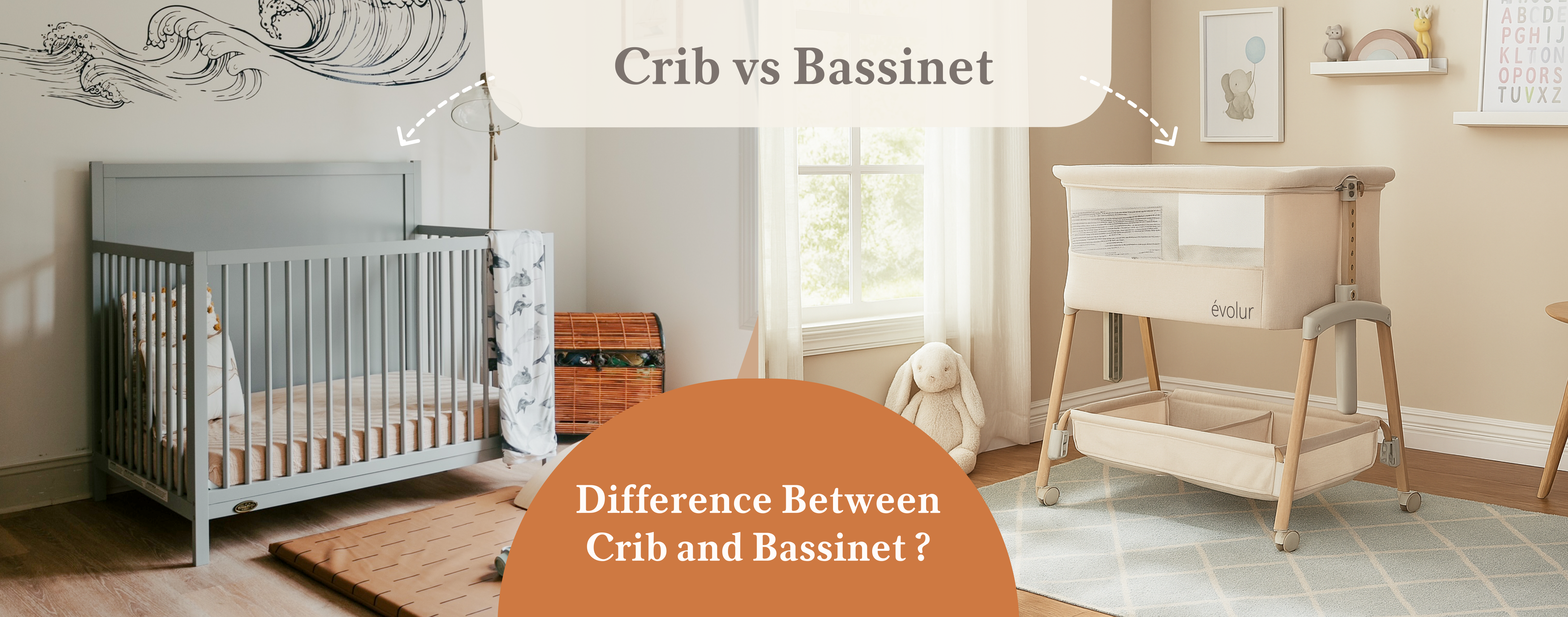
Crib vs Bassinet - Difference Between Crib and Bassinet?
Choosing between a crib and a bassinet is one of the biggest decisions new parents face when setting up their baby’s nursery. So, which one is right for your baby? Discover the benefits, features, and differences between cribs and bassinets to make the best choice for your little one’s comfort and safety.
Read more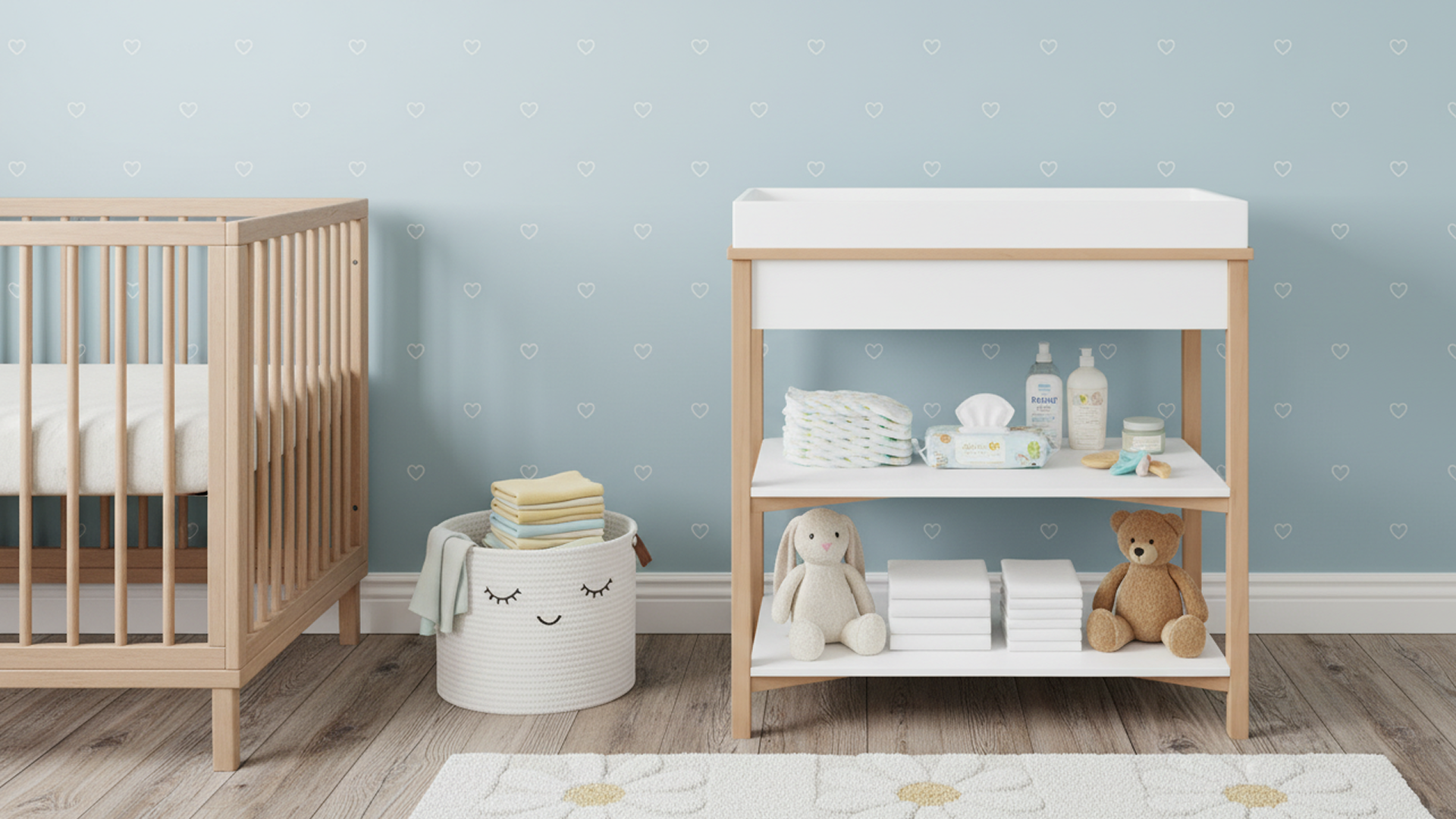
Do You Need A Changing Table? Affordable Changing Table Alternatives
Discover smart changing table alternatives perfect for smaller nurseries and tight spaces. This guide offers creative diapering station ideas, product recommendations, and expert tips to help you set up a functional space without compromising on convenience or safety.
Read more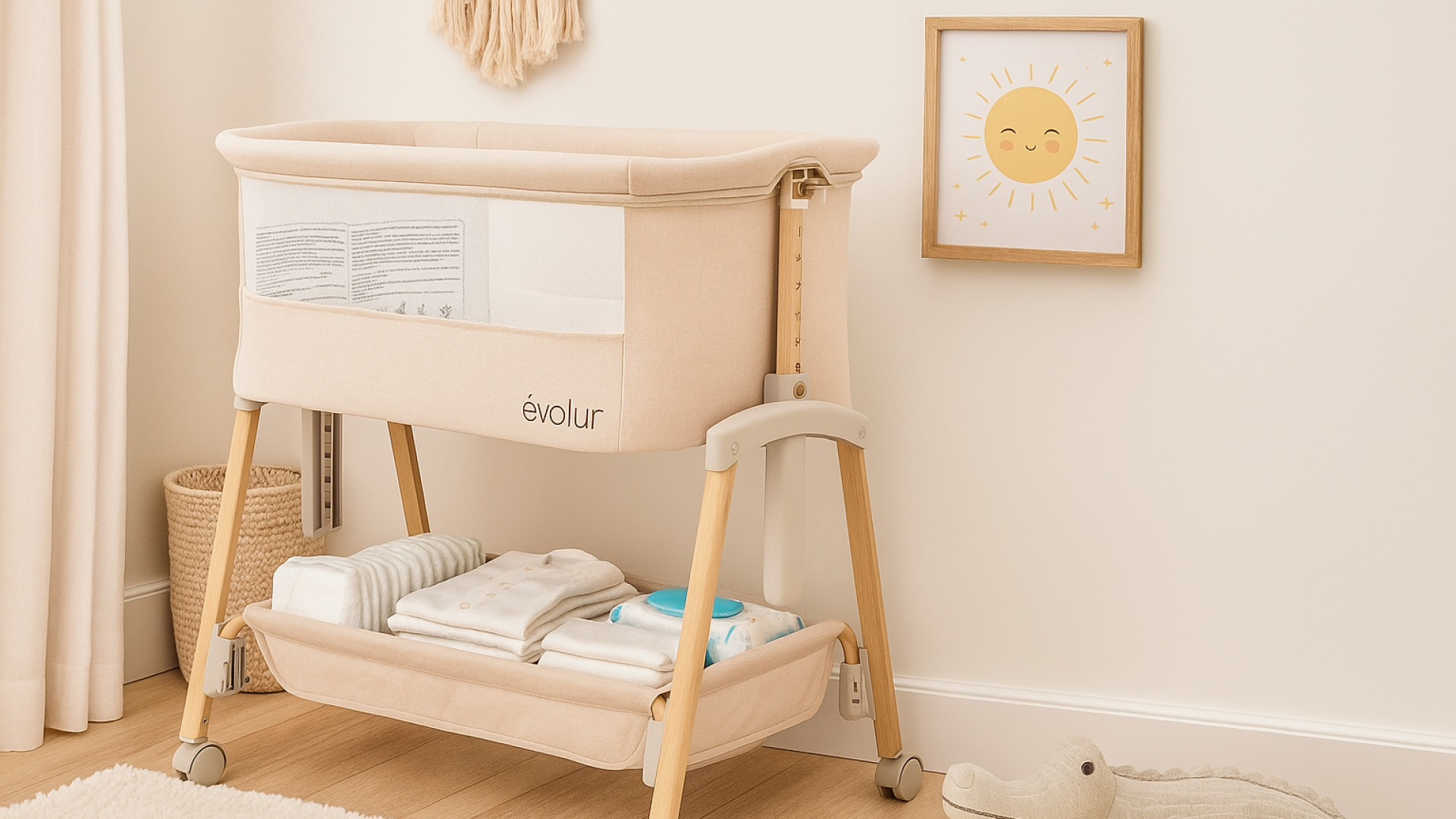
Do You Need a Bassinet? Quick Guide to Buy the Right Bassinet
Wondering if you need a bassinet for your baby? Our detailed guide breaks down the benefits, types, and safety standards of bassinets. Get tips on selecting the best bassinet as we answer common FAQs.
Read more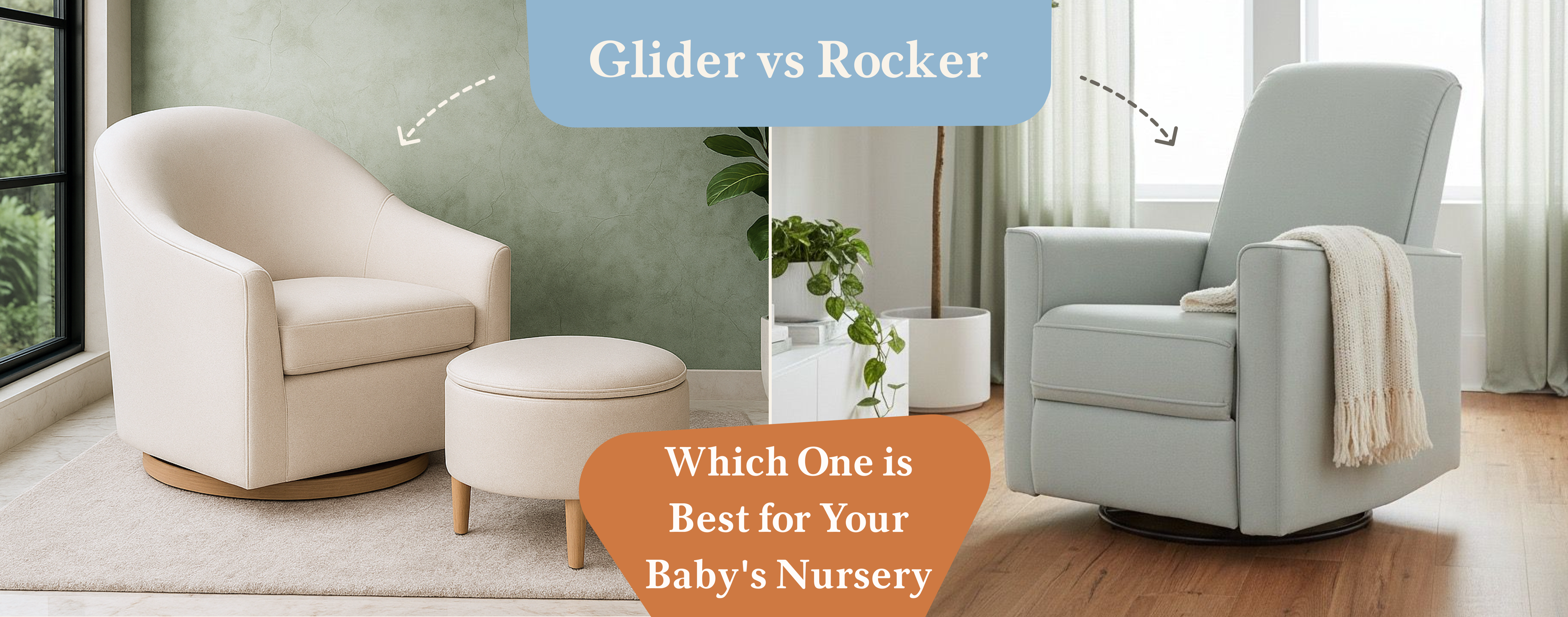
Glider vs Rocker: Which One is Best for Your Baby's Nursery?
Choosing between a glider and a rocker for your nursery can be overwhelming. This guide highlights the key differences, benefits, and drawbacks of each. Whether you prefer the smooth motion of a glider or the classic rocking experience, we help you pick the best option for nursing, bonding, and comfort.
Read moreHandpicked Just for You
(-30%)
4.8/5 (10)
(-17%)
4.8/5 (5)
More options
























































































































































































